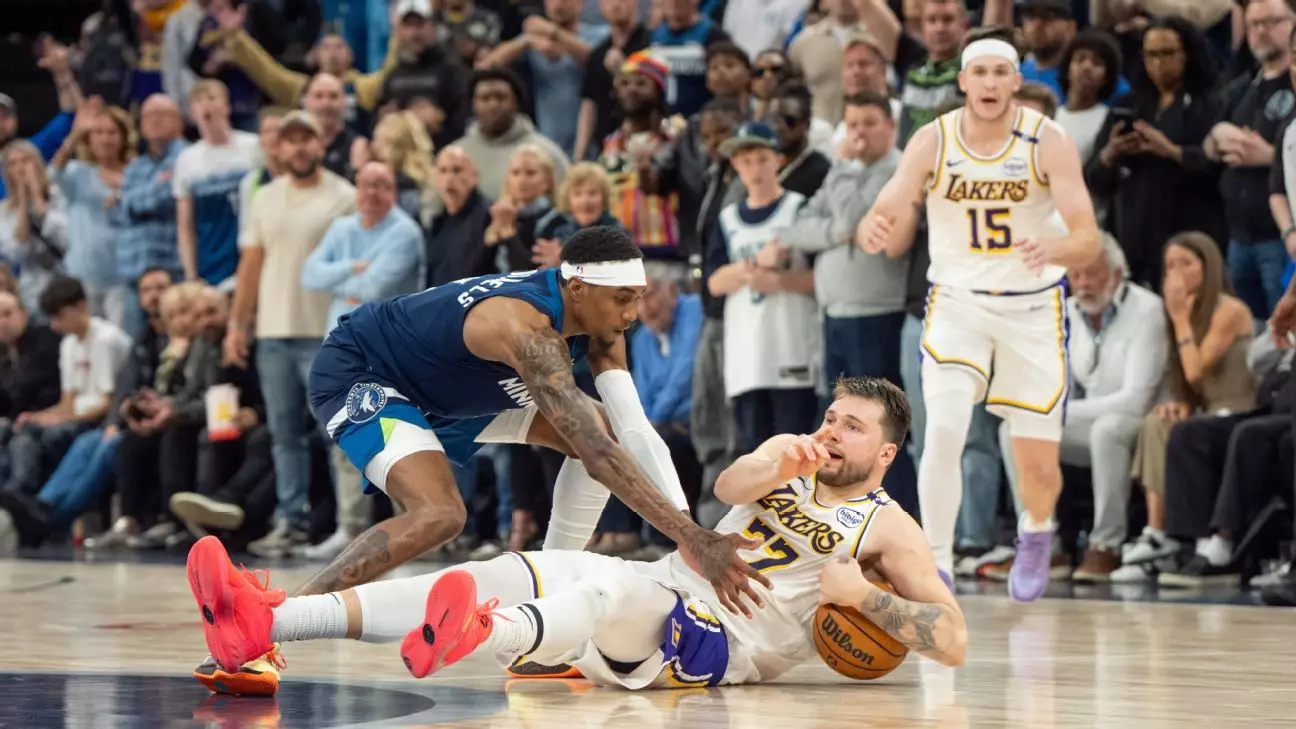The stakes are alarmingly high in the NBA playoffs, where each call can pave the way to victory or demise. Recent discussions have surfaced regarding a critical moment during Game 4 between the Los Angeles Lakers and the Minnesota Timberwolves, underscoring essential flaws in the officiating system. With just 33 seconds remaining and the Lakers trailing by one point, Luka Doncic was allegedly fouled by Jaden McDaniels near midcourt—a moment that many believe could have altered the game’s trajectory entirely if the referees had made the right call.
Observations of this incident, which the NBA later confirmed, reveal a systemic issue within officiating during nail-biting playoff moments. The chance to tie the game, or even take the lead, vanished in an instant. The refusal to reward Doncic with free throws was a glaring oversight, at least from the perspective of Lakers fans and critics alike. Doncic himself candidly stated, „I got tripped, for sure,“ indicating the solid basis for the claim that deserved recognition from officials on the court.
Ripple Effects of Inconsistent Officiating
It’s not only the missed call on Doncic that raised eyebrows; an additional foul went unaddressed in the game between the New York Knicks and the Detroit Pistons, contributing to a growing narrative of inconsistent officiating across high-stakes playoff games. Tim Hardaway Jr. was also fouled on a 3-point attempt as time expired, a foul that was confirmed post-game by the NBA. This duplication of missed calls brings into question the reliability and consistency of referees when the pressure is highest.
The implications extend far beyond a single game. The integrity of the playoffs hangs in the balance when such pivotal moments are mishandled. If just a handful of calls from the officials can potentially decide a playoff series, fans and players alike will lose trust in the fairness of the game. This situation can lead to a lack of faith not just in referees but in the entire framework of professional basketball.
The Role of the Last Two Minute Report
The NBA’s Last Two Minute Report was intended to bring transparency to officiating by acknowledging mistakes in real time, but one has to wonder if this reactive approach is sufficient. Releasing these reports post-game does little to alleviate the frustration felt by players and fans during the need-for-speed moments where split-second calls are the difference between glory and sorrow. This reactive analysis should ideally turn more proactive, with comprehensive training and technology-enhanced reviews for officials necessary to minimize human error.
Furthermore, the players‘ responses to these officiating inconsistencies reflect an essential tension brewing within the league. LeBron James’ remark about the officiating during the game—insisting that “hand is part of the ball”—while somewhat tongue-in-cheek, underlines a deeper frustration with what players perceive as the arbitrariness of officiating decisions. Should any game hinge on such murky interpretations of the rules?
As the playoffs continue, the scrutiny of officiating escalates, and repeated errors could lead to broader discussions about the need for revised training protocols, enhanced technology, and a commitment to improving the quality and consistency of calls made on the court. Fans, players, and coaches alike deserve a game played by the rules, where talent—not missed calls—decides the outcome.


Napsat komentář